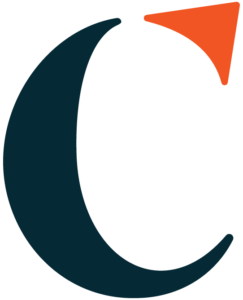True learning is not a one-and-done endeavor. Gartner found that without reinforcement, learners lose 87% of what they learned after 30 days, and in a world built around remote and hybrid work, they need the ability to do this asynchronously. If you want to get the most from your sales training, you need to find the right learning management system (LMS). With so many in the market, it’s difficult to choose. While Challenger sales methodology training integrates with any SCORM-compliant LMS and provides a platform that can deliver reinforcement asynchronously, we’ve developed a few thoughts over the last decade regarding what matters most (and what to skip) when choosing a system to deliver your new training. In this article, we’ll offer our perspective on requirements and considerations revenue leaders should use when selecting an LMS vendor for their go-to-market teams.
What is an LMS?
A learning management System, or LMS, helps training, enablement, and development leaders deliver online courses. It typically involves an interface that allows learners– in this case, your go-to-market team – to interact with learning content through videos, guidebooks, quizzes, and other material. As a revenue leader, your specific needs can help you narrow the field.
Why You Need an LMS for Sales Training
Many LMS options cater to the needs of human resources, broader learning and development teams, information technology training specifications, or industry-specific certifications (think HIPAA training). Each system offers its own advantages and quirks, but if you intend to use a system for your revenue team, ask whether the system supports sales training.
Sellers have a unique set of learning needs. Unlike that expense account tutorial, what they learn about sales methodology needs to infuse every one of their daily activities. It’s not an exaggeration to say your organization’s success rides on their ability to retain what they learned. Rather than trying to fit a square peg (sales training) into a round hole (a standard learning and development LMS), revenue leaders should look for functionality that fits their team’s unique needs.
Must-have LMS Features for Sales Training
Here are a few things we recommend you consider when choosing a LMS vendor. Prefer the TL;DR version without explanation? Scroll down for a complete bulleted list of considerations and questions.
Training and reinforcement tools
Your sellers don’t just need to learn new information, they need to retain it well enough to take it into the field. That requires an LMS that supports information delivery and reinforcement. The “forgetting curve” shows us why this matters. Without intentionally reinforcing what we learned, we lose new knowledge at an exponential rate.
To ensure your LMS is set up to educate your sellers and make it stick, ask yourself:
- What level of interaction do I want for my learners?
- Are there any compliance or visibility considerations to take into account?
- Do my sellers need an LMS that delivers a verified certification?
- What resources does the LMS have for training reinforcement?
- Does the LMS support assessments or surveys?
- How involved do managers need to be in the sellers’ learning journey? What’s important for them to see from a reporting, approval, scoring, or activity standpoint?
- Can the LMS distribute sales playbooks and resources?
- Should AI augment the learning journey in any way? If so, how would it ideally help?
- Can my LMS support recorded role-playing to improve reinforcement?
SCORM Compliance
Shareable Content Object Reference Model, or SCORM, is the industry technical standard for eLearning software products. SCORM-compliant eLearning courses reliably track time, completion, pass/fail, and scoring for your learners, all of which increase knowledge retention. If you’re hoping to use your LMS for Challenger training, we require LMS SCORM 2004 or SCORM 1.2 compliance. For Challenger customers who only need the LMS for Challenger training delivery, we simplified your options: An Activation license contains access to our regularly updated, SCORM-compliant LMS.
Related: Learn more about bringing the Challenger experience to your organization
Positive User Experience
A clunky user experience often stands in the way of learning, which means you must approach your LMS evaluation with the sellers’ needs in mind. Ask about mobile delivery options for on-the-ground sellers or investigate customizations for specific teams. Perhaps most importantly, you need to use the system yourself to know whether it’s easy to find and access courses in the catalog, save and reopen lessons, view in a variety of browsers, and more.
Ask yourself:
- How important is it to customize the learner’s experience to my business?
- How important is an experience that features our branding?
- What is the ideal learner flow, and how should my learners know what to do next?
- Is it critical that my learners can access content via a mobile device? (Note that most LMS providers that rely on SCORM file sharing don’t offer mobile learning) .
Customer Relationship Management (CRM) Integration
While you think about your LMS, your sellers think about the systems they already use every day. Whether they’re dialed into Salesforce, Slack, Gong, or another tech tool, your LMS will function the most seamlessly when it’s integrated with them. When you’ve confirmed these integrations exist, remember to ask about security compliance and login procedures, too.
Data and Reporting Functionality
Finally, you need to know that your LMS makes it easy to track participation, engagement, and ultimately, success. SCORM-compliant LMSs include these commonly requested features. By identifying your most important success metrics and comparing them against your LMS options, you can begin to grasp the tools you’ll use to judge the success of your methodology’s rollout. Consider whether you need to push that data to any external sources, such as Tableau, Snowflake, PowerBI, or another business analytics tool. An API in the LMS will make this external integration simpler.
Questions for LMS Evaluation
Here’s a comprehensive checklist for your LMS evaluation. Use this as you analyze capabilities and evaluate the best LMS for sales training for your revenue team.
Sales-specific functionality
- What level of interaction do I want my learners to take in the platform? What features are important in achieving this?
- Are there any compliance or visibility considerations I need to make?
- Do my sellers need any verified certification? How much of that process should take place in an LMS?
- What resources does the LMS offer for training reinforcement?
- Does the LMS support assessments or surveys?
- How involved do managers need to be in the sellers’ learning journey? What’s important for them to see from a reporting, approval, scoring, or activity standpoint?
- Can the LMS distribute sales playbooks and resources?
Administrative functionality
- What is the course creation experience like?
- How will I author content, and in what format?
- How easy is it to edit courses after publishing?
- How easy is it to make edits to published courses?
- Does the LMS support the creation of learning paths or sequenced courses?
- Does the LMS allow me to target specific groups of users to assign new content?
- How easy is it to create, update, or offboard new users? Will the LMS need to integrate with another system such as Salesforce or an HRIS for user management?
- Can this LMS support partner sales channels?
- Will users need to register for instructor-led training via the LMS? If so, what does administration look like?
- Does the LMS support role-based access?
User experience
- How important is it to customize the learner’s experience to my business?
- Where is it important to create my own branded experience vs. using an off-the-shelf experience?
- How easy is it to locate a course a learner has been assigned?
- How easy is it to locate a course in the catalog? Does the LMS have search functionality?
- Is it critical that my learners access content via a mobile device? Is it more important than SCORM integration?
Integrations & security
- Does this LMS integrate with the systems (Salesforce, Slack, Gong, etc.) my sellers use every day?
- Does the LMS support single sign-on (SSO) or the authentication method my organization requires?
- My company requires specific security compliance procedures or certifications. Does this LMS support them?
Data & reporting
- What data is important for me to track to ensure my learners are successful and engaged? How frequently?
- Do I need to push any data to an external source (Tableau, Snowflake, PowerBI, etc.)? Does this product have an API we can use?
Bonus: For Challenger Customers:
- Is the LMS SCORM 2004 (recommended) or SCORM 1.2 compliant? If you are looking to add Challenger content to your LMS, this is the most important question!
The Right LMS to Meet Your Needs
Your LMS plays a critical role in the delivery of whatever sales training you choose, so it’s important to carefully evaluate its features. With the considerations in this article and the checklist, you’ll know exactly how to identify an LMS vendor that prioritizes the seller experience and positions you to win.
Challenger, Inc.
Challenger is the global leader in training, technology, and consulting to win today’s complex sale. Our sales transformation and training programs are supported by ongoing research and backed by our best-selling books, The Challenger Sale, The Challenger Customer, and The Effortless Experience.
More from our blog
Don’t Let Reluctant Sellers Derail Your Sales Training
Though sales trends may change, sales leaders’ goals remain fundamentally similar: grow pipeline, close deals, increase revenue. Perhaps that’s why…
A Sales Leader’s Guide to AI Strategy
ChatGPT’s explosive debut in late 2022 changed the way many of us saw artificial intelligence’s role in everyday life. Sure, industries such as…
Three Keys to Maximizing Your Training Investment
Any sales leader deserving of that title knows that they need a sales methodology. Sometimes, they build the SKO around it. Maybe they roll it out…
What are you waiting for?
Transform your sales team.
The best companies grow, and grow fast, by challenging customers, not by serving them.





